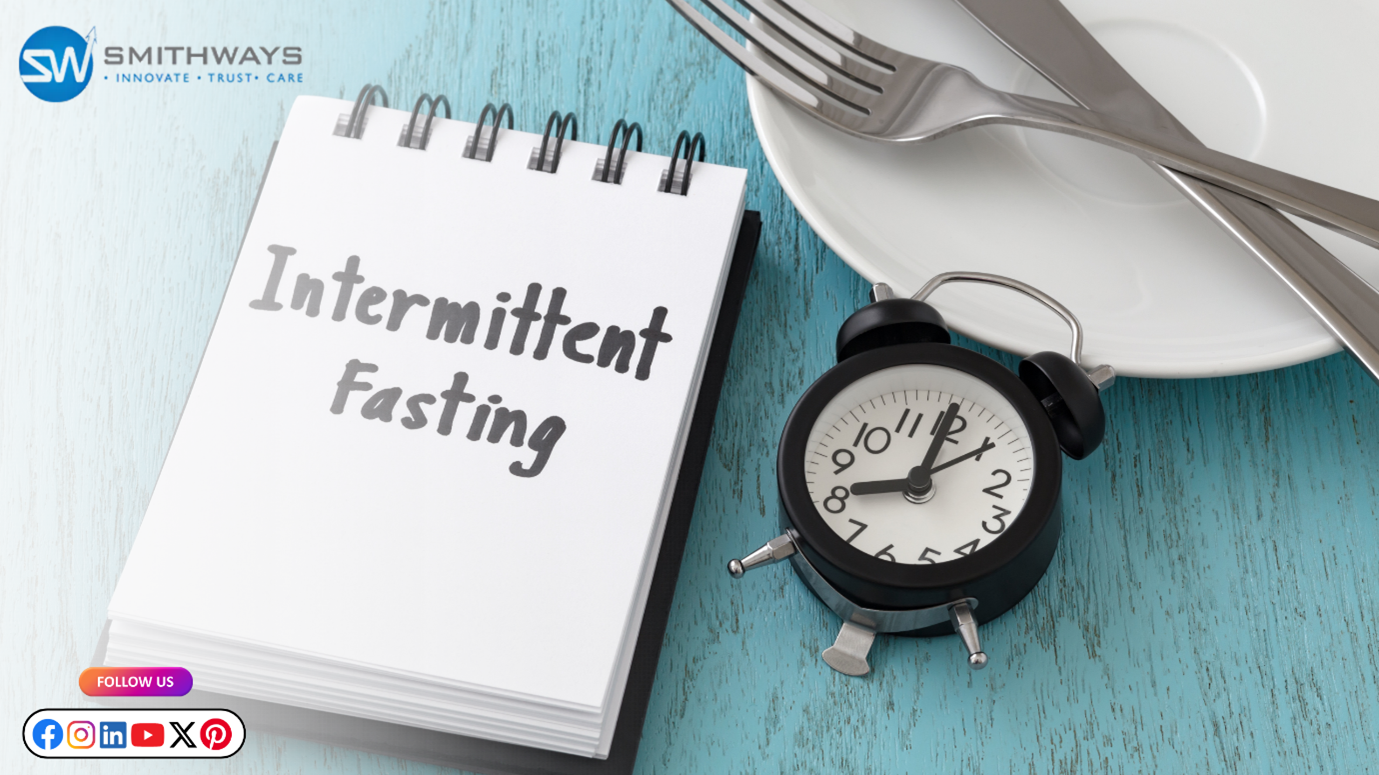Stress has become an unwanted but common companion for many of us in today's fast-paced, high-pressure world. Our minds and bodies are frequently exhausted by long workdays, incessant digital distractions, and never-ending to-do lists. The good news is that you don't have to let stress rule your life. Balance and peace of mind can be greatly restored by making small, regular lifestyle changes. At Smithways Healthcare, we think that incorporating small, everyday practices that can have a big impact is more important for stress management than making big, showy gestures.
This blog will dive into daily habits to cool off stress, showing you practical, realistic, and science-backed approaches you can easily adopt without disrupting your schedule.
Why Small Practices Matter More Than Big Overhauls
People frequently picture taking a vacation, attending a retreat, or making significant lifestyle adjustments when they think about stress relief. Although they can be useful, those are not long-term, everyday fixes. Stress is a common occurrence, and effective stress management calls for commonplace techniques. Small but regular mini-practices can help with that.
According to psychological research, micro-habits, small, recurring behaviours carried out regularly, rewire the brain and nervous system to cope with stress more skilfully. These are easy to stick with over time, manageable, and less daunting than significant life changes.
Start the Day with Mindful Breathing
Your morning routine determines how the rest of your day will go. Spend just three to five minutes sitting quietly and paying attention to your breathing, rather than jumping right into emails or social media. Breathe in deeply through your nose, hold it for a few seconds, and then slowly release it.
This exercise helps you ground yourself before the day's challenges arise and lowers cortisol, the stress hormone. Making the practice of mindful breathing a priority daily habits to cool off stress is a powerful yet simple way to create inner calm before the chaos begins.
Move a Little, Often
You don't need to spend an hour at the gym to reap the benefits of exercise, which is frequently touted as a natural antidepressant. Even small movements, such as stretching at your desk, using the stairs, or going for a quick 10-minute walk, can increase blood flow, release endorphins, and help you decompress.
Including short bursts of activity throughout the day helps you sleep better, have more energy, and fight stress. Consider these small movements as investments in your physical and mental well-being.
Practice the “One-Minute Reset”
Take a 60-second break whenever you feel overburdened. Put your phone down, close your eyes, and give it a full minute to reset. This can be accomplished by repeating a soothing affirmation, concentrating on your breathing, or even visualizing something pleasant.
The stress cycle is broken by this one-minute break, which stops it from getting worse. You can perform this mini-practice anywhere, whether it's in traffic, before a meeting, or while standing in line. This eventually turns into one of the most successful daily habits to cool off stress.
Stay Hydrated, Stay Balanced
Although it might seem overly obvious, dehydration is a secret cause of stress and exhaustion. Energy levels, mood, and concentration can all be affected by even mild dehydration. Instead of drinking all the water at once, make it a habit to sip it throughout the day.
Hydration can be made more pleasurable by adding a slice of lemon, cucumber, or mint. As a visual reminder, think about keeping a reusable bottle on your desk. Consider it a bottle of stress prevention.
Digital Detox Moments
We are constantly inundated with news updates, social media highlights, and notifications on our screens. Although technology helps us connect, it also contributes to stress and overstimulation. Your mental health can benefit greatly from planning brief "digital detox" periods, such as putting your phone away during meals or designating screen-free hours before bed.
You can recover your focus and restore the boundaries between your personal and professional lives with the aid of these mini-practices. Cutting back on screen time also enhances sleep, which lowers stress levels.
Gratitude Micro-Journaling
Even writing down one thing for which you are thankful each day can significantly change your perspective, even though keeping a gratitude journal may seem time-consuming. It shifts attention from stressful situations to enjoyable ones, no matter how minor.
Journaling about gratitude gradually rewires the brain to become more resilient and upbeat. Regular practice makes it one of the daily habits to cool off stress that enhances overall emotional well-being.
The Power of Mini Social Connections
Hours of in-depth discussion are not necessary to feel supported. You can feel happier and less stressed just by having a brief conversation with a friend, smiling at a complete stranger, or even sending a kind text. Because of our innate need for connection, even brief social encounters cause the release of oxytocin, the "feel-good" hormone that reduces stress.
It's simple and rewarding to incorporate these little connections into your daily life, and they act as a stress reliever.
Nature Breaks, Big or Small
Even a short period of time spent outside can immediately relax the nervous system. Even just sitting by a window, caring for a plant, or going for a quick stroll outside can be calming if you are unable to visit a park.
According to studies, being around greenery and natural light lowers blood pressure, improves concentration, and lessens anxiety. Including natural breaks in your daily habits to cool off stress can be as simple as pausing to notice the sky or listening to birdsong.
Mini Wins Through Task Chunking
Stress is frequently brought on by excessive workloads, but dividing large tasks into smaller, more manageable pieces lowers anxiety and fosters a sense of achievement. For example, concentrate on writing two pages at a time rather than attempting to finish a 20-page report all at once.
Dopamine is increased when these small victories are celebrated, and this reduces stress and improves motivation. This method turns daunting assignments into attainable objectives, lightening and organizing your workday.
Evening Wind-Down Rituals
Stress frequently persists into the night and interferes with sleep. Establishing a brief evening routine, such as sipping herbal tea, doing gentle stretches, or reading a soothing book, tells your body it's time to relax.
By reducing overstimulation, these techniques help your mind get ready for deep, rejuvenating sleep. Since sleep is the body's most natural way to reduce stress, safeguarding it ought to be a top priority.
Final Summary
Consistent, long-lasting micro practices, rather than drastic overhauls, are the key to stress management. Layering these mini-habits throughout your day, such as gratitude journaling, digital detox breaks, or mindful breathing, helps you develop a resilient mindset that will help you deal with life's obstacles more easily. Recall that consistency, not perfection, is the key. Start with two or three of these routines and work your way up to more as they become automatic. Over time, you'll experience more joy, productivity, and emotional balance in addition to less stress. At Smithways Healthcare, we urge people to view stress management as a daily skill that can be improved with small, intentional steps. Mini-practices will have a significant impact on your life if you start small and remain consistent.





















